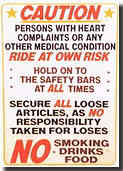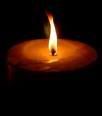Friday, January 16, 2009
Crawling toward Bethlehem
I'm fairly certain I saw Andrew Wyeth's retrospective at the Metropolitan in 1976. Fairly certain because I was seeing most of the big marquee exhibitions back then, in New York City & even Philly, & I know I viewed a bunch of his paintings in one place somewhere. But in 1976 the borders between abstraction & realism, mainstream & avant, pop & "high" art were crumbling, mirrored in music by a fashionable return to tonality & the downtown scene's embrace of punk & new wave rock. I've always had my music any old way I choose it, the same for visual art. I probably strolled through the Wyeth show, wondered why his gloomy depictions of rural decrepitude were so popular with people who hated "modern" art, then headed for the 19th Century Hudson River School paintings - to wallow in a fantastic style called "Luminism" - & the musical instrument galleries.
There were shows that infuriated me. I depised Grant Wood of "American Gothic" fame after viewing a retro of his stupid cartoony landscapes. & a show at the Whitney of some artist's huge all white canvases that was clearly a huge manipulative joke but treated with great seriousness by the critics who contributed to the exhibition catalogue, the artist's cynical co-conspirators, the whole thing probably dreamed up during a drunken weekend on Fire Island.
The art show that had an enduring impact on me, which I saw while in college, was an immense Marcel Duchamp retrospective at the Philadelphia Museum of Art. That exhibition was an education in almost all the possibilities & limitations of artistic expression. It challenged everything I took for granted about art. As with John Cage's music, if you come to grips, or at least a make a truce, with Duchamp, very little else can shock you. In a way I could explain if it were worth the bother, Duchamp is why I gravitated toward radio when the opportunity arose & would rather write a blog than give poetry readings.
"If a nation expects to be ignorant and free, in a state of civilization, it expects what never was and never will be." Thomas Jefferson
There were shows that infuriated me. I depised Grant Wood of "American Gothic" fame after viewing a retro of his stupid cartoony landscapes. & a show at the Whitney of some artist's huge all white canvases that was clearly a huge manipulative joke but treated with great seriousness by the critics who contributed to the exhibition catalogue, the artist's cynical co-conspirators, the whole thing probably dreamed up during a drunken weekend on Fire Island.
The art show that had an enduring impact on me, which I saw while in college, was an immense Marcel Duchamp retrospective at the Philadelphia Museum of Art. That exhibition was an education in almost all the possibilities & limitations of artistic expression. It challenged everything I took for granted about art. As with John Cage's music, if you come to grips, or at least a make a truce, with Duchamp, very little else can shock you. In a way I could explain if it were worth the bother, Duchamp is why I gravitated toward radio when the opportunity arose & would rather write a blog than give poetry readings.














